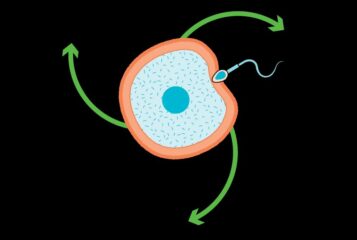The Government has unveiled plans to allow female same-sex couples to access six rounds of insemination, ahead of IVF, on the NHS.
Currently, patients who are part of a female same-sex couple need to demonstrate they have a clinical need for fertility treatment by having up to 12 rounds of artificial insemination. This had led to the creation of a financial barrier for many patients and was potentially discriminatory, a report by the British Pregnancy Advisory Service revealed last year (see BioNews 1100). The UK Government voiced its desire to remove this barrier in its Women's Health Strategy report published on 20 July 2022, which also outlined a desire to remove other non-clinical barriers to access, such as when one parent already has a child from a previous relationship.
Progress Educational Trust's (PET) director Sarah Norcross said: 'We welcome the Government's decision to remove barriers to fertility treatment for same-sex couples. Making such women pay to establish their infertility was always anachronistic and discriminatory.'
An IPSOS Mori survey commissioned by PET published last month showed just 28 percent of respondents supported NHS-funded fertility treatment for same-sex couples, compared to 67 percent who supported NHS-funded fertility treatment in general (see BioNews 1148).
National Institute for Health and Care Excellence guidelines currently state that UK NHS patients should be able to access three full rounds of IVF, alongside other fertility treatments and preservation and the report suggests the guidelines will be updated to reflect the planned changes when they are next reviewed in 2024. However, local access is highly variable as many local clinical commissioning groups choose not to fund this.
The Women's Health Strategy report promises 'greater transparency' around the IVF postcode lottery, to which Norcross responded: 'What is extremely disappointing, however, is that there is no plan to end the postcode lottery which affects [same-sex couples] and all others seeking fertility treatment in England.'
'The commitment to improve transparency in relation to the availability of IVF does not equate to giving women the chance to try to have a baby.'
Professor of obstetrics and gynaecology at Imperial College London Professor Dame Lesley Regan has been appointed England's first ever women's health ambassador as part of the strategy pledge to 'tackle the gender health gap'.
Julia Chain, chair of the Human Fertilisation and Embryology Authority said of the appointment: 'There are many important ambitions outlined in the Women's Health Strategy and we look forward to working with Dame Lesley Regan and others to ensure they are realised.'
Over 100,000 responses were submitted to the call for evidence in June last year, including from PET (see BioNews 1100). In response to many of the areas highlighted the report commits to exploring ways to gather data using 'femtech' and digital technologies on women's health, as well as commissioning research on a range of issues including endometriosis, PCOS and other gynaecological conditions as well as IVF add-ons. Women's health hubs are promised alongside an improvement in endometriosis services.
A report in April revealed that gynaecology had the longest NHS waiting times of all medical specialties (see BioNews 1140).
Sources and References
-
First Women's Health Strategy for England to tackle gender health gap
-
Women's Health Strategy for England
-
Women's health: Plan to stop 'sexist' NHS treatment
-
Discriminatory NHS rules on IVF for queer women to be scrapped in huge leap for equality
-
Women's Health Strategy paves the way for more inclusive and accessible fertility services
-
RCOG responds to the Women's Health Strategy for England







Leave a Reply
You must be logged in to post a comment.